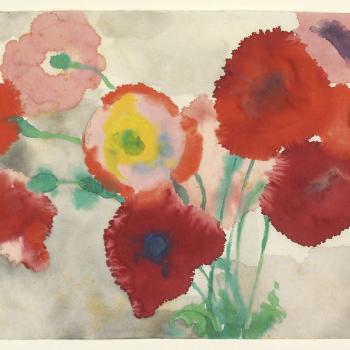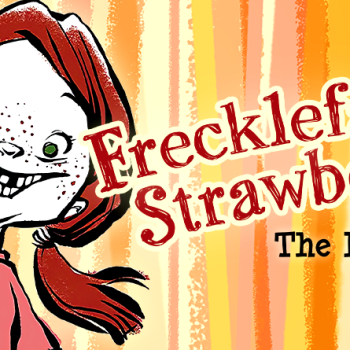Before you can truly be one of his he's going to have to reach deep inside of you and scoop out all the dirt and shit, all the trauma and delusion and unhealthy stuff that's polluting your soul. And let me tell you from personal experience, it hurts like a mother when that happens! When all that stuff starts bubbling up to the surface and you've got to confront things you've spent a lifetime avoiding, it isn't fun. It isn't fun for you and isn't going to be very fun for any of the people around you, either.
Before the process is complete a lot of Dionysians end up hurting the ones they love in horrible ways and their lives often fall apart around them. Especially the ones who don't follow it through to the end. That's where the real danger lies—stopping midway. You can get caught in madness (the bad kind) and addiction, without any way of coping since those mechanisms are often the first to go. But if you stick with it and let Dionysos guide you through the purifying flames, some really awesome things can happen. But you've got to have faith and trust and love for him, an iron-willed commitment to live fully and freely, no matter the cost.
I've been writing quite a bit lately on honoring ancestors. Now I know from reading your blog that you have devotional relationships to several Deities in addition to Dionysos and that you actively honor the land spirits where you live. Does ancestor veneration play any part in your spirituality right now?
Dionysos, especially the form of him that I deal with most often, is a chthonic deity, the son of Persephone and lord of a portion of the souls of those beneath the earth. We see this side of him especially during Anthesteria, the Ionian flower festival when the new wine is broached, the god sleeps with the wife of the king to ensure the fertility of the land, and the dead walk among us, called up to join in the feast. But this was also a prominent aspect of Dionysos in Hellenistic Egypt where he was equated with Osiris and Dionysian iconography was frequently incorporated into funerary art. Initiates in his mysteries were promised a better lot in the afterlife, reveling eternally in the company of their Lord and enjoying an endless feast and ever-flowing wine. And hosts of spirits accompany Dionysos in his revels on earth like the Wild Hunt that follows in the wake of Odin.
Therefore the dead are vitally important to me as a Dionysian, though most of the "ancestors" I honor are not related to me by blood. I have no real ties to my living family since my father vanished when I was still a child and my mom had been pretty much disowned by her parents for running off with a "Red Injun." (They even cut her out of this huge oil painting hanging in the living room—that's how extreme they were.) So I suppose it's not too surprising that I haven't really had much contact with the dead ones either. Even with that history I did make overtures to the deceased blood relations but they were pretty much unresponsive. I wonder if that will change—at least on my maternal Sicilian side—now that I'm delving into certain Italian religious traditions, but honestly I don't much care one way or another since I have a fairly strong connection to the Dionysiac dead and the Ptolemies in particular, who more than meet my needs for ancestor veneration.
Of course, things are a little more complicated when it comes to the Ptolemies since they are not normal dead but possess a status somewhere between a conventional Greek hero and a full-fledged divinity, being the apotheosized Makedonian Dynasty that ruled Egypt during the Hellenistic era. Though they were worshiped as gods both posthumously and in their own lifetimes, few today even know their names and noble deeds, let alone would consider worshiping them. So with a few exceptions I've pretty much got the Ptolemies to myself, which is kind of neat when you really think about it.
I have been actively engaged in their cultus for nearly half a decade now and probably have the strongest relationship with them of any of my divinities after Dionysos, Hermes, Aphrodite, and Spider. For me they are closely connected with Dionysos; in fact some of them acted as earthly vessels or avatars (to borrow the Hindu term) for him while they were alive and, if anything, their Dionysiac association has only increased in death. In addition to the standard things one does for the dead I've "horsed" them like the Haitian lwa in ritual, both alone and in concert with Dionysos. That is always an intense, strange, and exhausting experience but well worth it to give them a taste of physical existence and its pleasures once more.
What has been the most surprising thing that's come of your developing devotional relationship and service to Dionysos? What aspect of your service to Him has surprised you the most?
Ha! It's impossible to limit that to only one thing because really everything about Dionysos surprises you and challenges your basic assumptions. But I suppose the thing that stands out the most for me is how much he seems to like us and enjoy being around us. Most Greek gods are a little aloof, maintaining that fundamental divide between mortality and the divine. They may deign to come down from the gleaming heights of Olympos to observe the rites we carry out in their honor—and a few may have a more intimate involvement in the lives of their chosen devotees—but Dionysos gets right down in the thick of it with us, moving through our flesh in the dance and madness, throwing everything into riotous confusion and blurring all the artificial boundaries.





